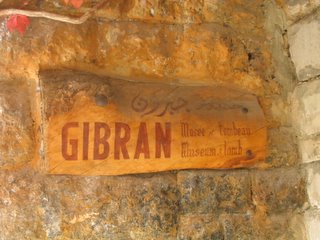May I present.... THE CEDARS OF LEBANON



 I love trees. Even remembering the too-brief 30 minutes among the Cedars while it was alternating between rain/sleet/hail and snow brings some giggles up to the surface. We went north to Becharee in Lebanon on our last day, traveling on a minibus to Tripoli and then catching an additional bus to Becharee. We were all initially very disheartened because this was the day of the north! the mountains! the cedars! and all we saw when looking out the window was rain and fog. Though a change in weather was appreciated from the dryness of Cairo, we wanted to see the north in all of its glory. After the bus dropped us off it was pouring down rain, I desperately needed to find a bathroom, and I remember exclaiming that I could already tell I loved this town and wanted time to point out all of its small, mountain town glory, but could only concentrate on another need. We found a patisserie and burst in, hurriedly asking if I could use the restroom, and while I did the moms and Jayanthi sat down in the quiet shop and ordered coffee. There were icons and crosses everywhere, both in the Patisserie and all over Becharee, quite a different view from what I have become used to, in addition to looking remarkably different from Southern Lebanon. So these were the Maronites! Though about 20 % of the population, they have traditionally held the most power, notably reflected in Lebanon's confessional system of government, ensuring that a Maronite is president.
I love trees. Even remembering the too-brief 30 minutes among the Cedars while it was alternating between rain/sleet/hail and snow brings some giggles up to the surface. We went north to Becharee in Lebanon on our last day, traveling on a minibus to Tripoli and then catching an additional bus to Becharee. We were all initially very disheartened because this was the day of the north! the mountains! the cedars! and all we saw when looking out the window was rain and fog. Though a change in weather was appreciated from the dryness of Cairo, we wanted to see the north in all of its glory. After the bus dropped us off it was pouring down rain, I desperately needed to find a bathroom, and I remember exclaiming that I could already tell I loved this town and wanted time to point out all of its small, mountain town glory, but could only concentrate on another need. We found a patisserie and burst in, hurriedly asking if I could use the restroom, and while I did the moms and Jayanthi sat down in the quiet shop and ordered coffee. There were icons and crosses everywhere, both in the Patisserie and all over Becharee, quite a different view from what I have become used to, in addition to looking remarkably different from Southern Lebanon. So these were the Maronites! Though about 20 % of the population, they have traditionally held the most power, notably reflected in Lebanon's confessional system of government, ensuring that a Maronite is president.
Though cold and wet, we had gathered enough strength by the space heater in the Patisserie to voyage onward, intent on going to Gibran Khalil Gibran's museum and final resting place. He is the Lebanese author of The Prophet, who spent most of his life in America and Europe, but was born and buried in Becharee. We had a fascinating introduction to the north and to Gibran from one of the museum employees, who was very intent on explaining that the Maronites do not come from Arab descent and therefore don't see themselves as Arabs, despite sharing the Arabic language. He also spoke of the relationship of Syria and Lebanon and how Lebanon was a country of 4 million people bearing a debt to Syria of 40 (million? I believe). Regardless of the actual statistics, it just goes to show one of the many complicated factors in the relationship between these two countries. The museum itself was very nice, I particularly enjoyed his paintings and how he used them to wrestle with the spiritual and the humane, combining an often classical approach with modern interpretation.
A peek out of the window in the museum led us to speed through the rest because miraculously the wind had blown out all of the rain and fog from the mountains and had given us the opportunity to see the absolutely beautiful and striking mountains and valley below. The red-roofed steeples and clusters of houses made the old adage of Lebanon being the "Switzerland of the Middle East" all the more true. We could even see the snow-peaked mountains framed by a clear blue sky and wispy clouds. The clarity was short-lived, by the time we exited the cedars it had become rainy and foggy once more, but we felt as if Gibran himself had thrown out his hand and cleared it just for us.

0 Comments:
Post a Comment
<< Home